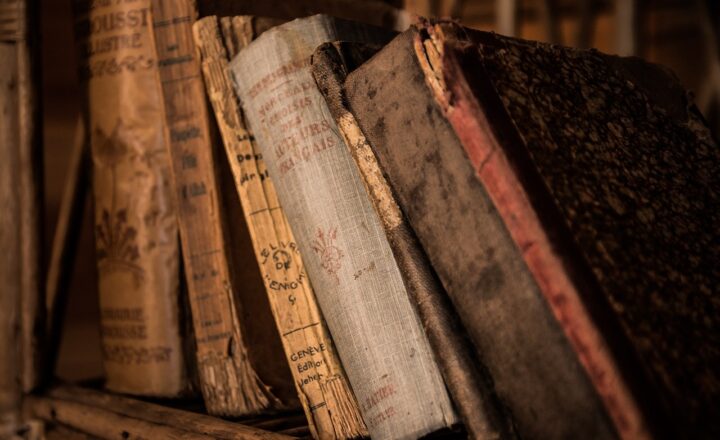The Best Books for Learning About World Cultures and Histories
November 11, 2024

Understanding world cultures and histories enriches our perspective, broadens our horizons, and fosters empathy towards others. Books are invaluable resources in this pursuit, offering insights into various societies through narratives, studies, and personal accounts. In this article, we will explore some of the best books that provide a deep dive into world cultures and histories, helping readers navigate the fascinating tapestry of human civilization.
1. “Guns, Germs, and Steel: The Fates of Human Societies” by Jared Diamond
Written by geographer and historian Jared Diamond, this Pulitzer Prize-winning book tackles the question of why certain societies have prospered while others have failed. Diamond explores the roles of environmental factors, agriculture, and technological advancements in shaping civilizations. His interdisciplinary approach draws from various fields such as biology, anthropology, and history, providing a comprehensive framework for understanding human development.
Diamond argues that the differences between societies are not rooted in racial or ethnic superiority, but largely arise from geographical and environmental circumstances. His book is a must-read for anyone interested in understanding fundamental historical processes that shaped the world.
2. “The Cultural Intelligence Difference” by David Livermore
In an increasingly globalized world, cultural intelligence is crucial for success in varied environments. David Livermore’s work provides insights into the importance of understanding and adapting to diverse cultures. He introduces the concept of Cultural Intelligence (CQ), which goes beyond just awareness; it involves knowledge, strategy, and action to navigate cultural nuances.
Livermore offers practical advice on how to develop CQ, including tips on interacting with others from different backgrounds, resolving conflicts with cultural sensitivity, and adapting leadership styles to diverse groups. This book is essential for professionals, educators, and anyone looking to thrive in multicultural settings.
3. “The Silk Roads: A New History of the World” by Peter Frankopan
Peter Frankopan challenges the Eurocentric view of history by redirecting attention to the East, particularly the significance of the Silk Road in shaping world events. In this sweeping narrative, he explores how trade routes across Asia and the Middle East played vital roles in the exchange of culture, religion, and commerce.
Frankopan’s work covers a vast timeline, revealing how historical events are interconnected and how they continue to influence contemporary issues. His engaging storytelling style makes this complex narrative accessible to viewers, making it an excellent choice for both casual readers and history enthusiasts.
4. “Sapiens: A Brief History of Humankind” by Yuval Noah Harari
Yuval Harari’s highly acclaimed book takes readers on a journey from the dawn of humankind to the present day. Harari examines how Homo sapiens came to dominate the planet, focusing on cognitive, agricultural, and scientific revolutions that propelled human society.
Through its engaging prose and thought-provoking questions, “Sapiens” encourages readers to reflect on various aspects of culture, including language, religion, and economics. Harari’s ability to weave complex ideas into a captivating narrative ensures that this book is not only informative but also enjoyable.
5. “Culture Shock! A Survival Guide to Customs and Etiquette” series
For travelers and expatriates looking to understand new cultures, the “Culture Shock!” series provides an excellent resource. Each book in the series focuses on a specific country and covers various cultural aspects, including social norms, traditions, communication styles, and etiquette.
Written by local experts, these concise guides help readers navigate cultural differences and avoid misunderstandings while providing a snapshot of daily life in different regions. This series is perfect for those planning to travel or work abroad and wish to immerse themselves in their host cultures smoothly.
6. “The New Jim Crow: Mass Incarceration in the Age of Colorblindness” by Michelle Alexander
Michelle Alexander’s powerful book explores systemic racism in the United States, focusing on how mass incarceration acts as a contemporary system of racial control. While specific to American society, Alexander’s work resonates worldwide as it examines themes of inequality, justice, and social stratification.
The book combines statistical evidence, case studies, and personal narratives to shed light on harsh realities faced by marginalized communities, making it an essential read for anyone interested in social justice and human rights issues across cultures.
Conclusion
The richness of world cultures and histories is best understood through thoughtful exploration. These books offer varied perspectives, from historical analyses to cultural insights, inviting readers to expand their knowledge and appreciation of human civilization. Exploring different narratives provides an avenue to foster empathy and understanding, crucial for navigating our increasingly interconnected world. As you delve into these books, you will find not just information, but a profound connection to the global tapestry of human experience. So, grab a book, and let the journey through cultures and histories begin!







